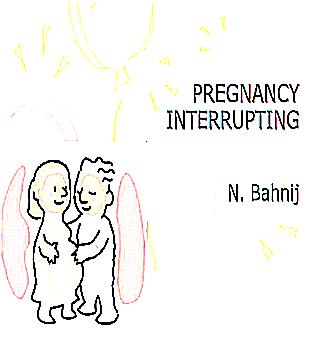Home >
Erectile Dysfunction >
Sexual genital infantilism
Sexual (genital) infantilism

From time to time, patients turn to reproductive doctors with the problem of growth retardation and development of primary or secondary genital organs. As a rule, pathology is detected even in puberty, but there are many adults in whom the reproductive system works the same way as in adolescents or even children. In this case, doctors diagnose sexual or genital infantilism.
Medical practice marks 3 stages in the development of such a pathology.
- Embryoism. Anomalies of development are laid even inside the womb, as a result of which premature babies are born with a level of development of the embryo. Further, infantile infantilism develops, when grown-up babies do not outperform infants in physiological parameters
- Puerilism. In adolescence, boys and girls do not observe the active development of secondary genital organs - they remain at the physiological level of younger schoolchildren
- Juvenileism. In this case, in adults, the reproductive system corresponds to the adolescent period
Most often, sexual infantilism is of a chronic nature and requires long-term therapy, including radical surgical methods.
Causes of pathology
The disease is common in both females and males, developing mainly for the following reasons:
- disruption of the endocrine system, diseases of the pancreas, thyroid or other endocrine glands in puberty, which leads to hormonal imbalance
- chromosomal abnormalities, heredity
- disorders of the development of the embryo in the womb, hypoxia or placental abruption, which led to oxygen starvation and nutritional deficiencies for development etc.)
- lack of nutrients in the teenager's menu
- unhealthy living conditions (poor environment, insufficient water purification, high radioactive background, work at enterprises with chemicals, etc.) )
- severe infectious diseases in childhood (measles, mumps, rubella, scarlet fever and others), as well as recurrent chronic diseases of the ENT organs
- plastic or therapeutic surgery on the or gans of the reproductive system
- autoimmune processes
- diseases associated with deficiency of immunity
- disorders of the circulatory system, cardiovascular pathologies
- diseases of the gastrointestinal tract and etc.
Signs of male infantilism
Men with the disease are not difficult to recognize - their appearance, body constitution and voice do not correspond to age and gender parameters. The patient himself notes the following symptoms of chronic pathology:
- underdevelopment or underdevelopment of the external genital organs (testicles, penis, etc.)
- lack of libido and sexual desire
- lack of spontaneous erection, emission, ejaculation< / li>
In some cases, there is psychological infantilism as a consequence of the physical. In this case, the genitals are formed normally, but the man has a fear of the female body and sex, lack of confidence in his abilities, reduced sexual desire, erectile dysfunction up to impotence. As for physiology, it is often the insufficient size of the penis that is evidence of sexual infantilism - 2-2.5 times less than the average length. It is advisable to prescribe corrective treatment up to the age of 14.
Signs of female infantilism
In women, pathology proceeds in 3 forms, on which the symptoms depend. Rudimentary uterus. Insufficient development of the hollow organ, the diameter does not exceed 30 mm, and most of it is the cervix. For medical practice, this congenital pathology is quite rare. The patient notes lifelong amenorrhea. Restoration of reproductive function in this case is impossible. Underdeveloped uterus. Insufficient development of the organ, but the diameter is from 30 mm. The woman notes irregular and scanty periods, which can be accompanied by severe discomfort and pain. Uterine hypoplasia. The length of the hollow organ does not exceed 60 mm. As a rule, sexual infantilism in this case is the result of infections or inflammation in childhood, puberty. The second and third forms are treatable, but it takes a long time. Additional signs of female genital infantilism:
- lack of hair growth in the genital area and armpits
- underdevelopment of the mammary glands
- cycle disorders
- headaches and fainting
- nausea
- clinically narrow pelvis
- abnormal gestation
- infertility
Treatment options
Treatment of sexual infantilism includes the following mandatory steps.
- Improving immunity
- Correction of the menu, introduction of vitamin and nutritional supplements into the diet
- Hormone therapy. Aimed at activating the processes of secretion of male or female hormones by the body, substitution treatment with synthetic drugs
- Drug treatment according to symptoms and indications
- Psychotherapy sessions with the possible use of antipsychotics, antidepressants, etc.< / li>
- Physiotherapy (electrophoresis, balneological procedures, acupuncture, massage, etc.).
- Radical treatment - plastic and other surgical procedures (for example, phalloplasty)
In women, a therapeutic effect is often observed after the onset of pregnancy - the body produces enough hormones, develops and grows for bearing a child, which eliminates some signs of infantilism. The success of treatment will depend on an integrated approach, the patient's physical health, the psychological climate in his family and the immediate environment.



























